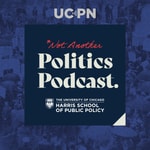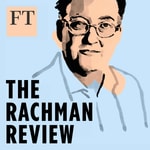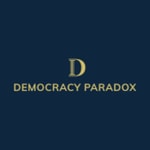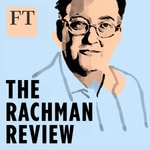Not Another Politics Podcast – Details, episodes & analysis
Podcast details
Technical and general information from the podcast's RSS feed.

Not Another Politics Podcast
University of Chicago Podcast Network
Frequency: 1 episode/14d. Total Eps: 142

Recent rankings
Latest chart positions across Apple Podcasts and Spotify rankings.
Apple Podcasts
🇺🇸 USA - government
02/08/2025#63🇺🇸 USA - government
01/08/2025#48🇺🇸 USA - government
31/07/2025#49🇩🇪 Germany - government
30/07/2025#100🇺🇸 USA - government
30/07/2025#51🇩🇪 Germany - government
29/07/2025#86🇺🇸 USA - government
29/07/2025#32🇩🇪 Germany - government
28/07/2025#74🇺🇸 USA - government
28/07/2025#35🇬🇧 Great Britain - government
27/07/2025#85
Spotify
No recent rankings available
Shared links between episodes and podcasts
Links found in episode descriptions and other podcasts that share them.
See allRSS feed quality and score
Technical evaluation of the podcast's RSS feed quality and structure.
See allScore global : 42%
Publication history
Monthly episode publishing history over the past years.
What's Behind The Educational Realignment In Voting?
Episode 121
mercredi 25 septembre 2024 • Duration 56:43
Ever thought about how your college degree might sway your political leanings? Voters with and without college degrees drifting apart, especially on issues like economics, social values, and foreign policy, but what's driving this shift, and how are party positions influencing voters across different education levels?
A new paper from University of Pennsylvania’s William Marble, “What Explains Educational Realignment? An Issue Voting Framework for Analyzing Electoral Coalitions” gives some surprising answers to these questions and challenges the assumptions we often hear in the media.
Does Election Timing Matter For Turnout And Policy Outcomes?
Episode 120
mercredi 28 août 2024 • Duration 42:33
We talk about it every election cycle…how can we get higher voter turnout? As part of the Center for Effective Government’s primer series focusing on the scholarship covering the pros and cons of different government reforms, University of Chicago Policy Professor Christopher Berry examined whether changing the timing of elections can result in higher turnout.
But he also explored a much more contentious and complex question. Does higher voter turnout result in better policies? Is it possible that a higher turnout often results in less knowledgeable voters pushing elections in a direction that results in worse outcomes?
Should Policy Match Voters' Preferences?
Episode 111
mercredi 17 avril 2024 • Duration 42:55
How do we know if our democracy is healthy? For political scientist, the answer often comes down to things we can measure like responsiveness to voter’s wishes. But is that really the right thing to measure?
There are two camps in this debate. The empiricists want to focus on what and how we can measure things like the health of our democracy, often focusing on indicators like responsiveness, while the normative theorists want to focus on what we even mean…and what we should mean…by democratic health.
If you’ve listened to our show before, you can probably guess that we fall more into the empiricists camp, but we wanted to bring on someone who could challenge our assumptions.
Andrew Sabl is a political scientist from the University of Toronto and the author of “The Two Cultures of Democratic Theory: Responsiveness, Democratic Quality, and the Empirical-Normative Divide” in which he argues that the empiricists need to pay more attention to what they’re measuring and why.
Reining In The Supreme Court
Episode 21
mercredi 21 octobre 2020 • Duration 37:49
The appointment of Amy Coney Barrett would make the Supreme Court more conservative than it has been in decades. Importantly, it also would be more conservative than the majority of the public. But one piece of political science research suggests that an out-of-step Court will not simply have its way in the years ahead.
Judges like to present themselves as arbiters of the law, free from the entanglements of politics. But work from Tom Clark, Professor of Political Science at Emory University, calls that idea into question, and shows why our new conservative Court may still follow public opinion.
The Vice Presidential Debate: Just Another Politics Podcast
Episode 20
lundi 12 octobre 2020 • Duration 37:07
On this second edition of the "Just Another Politics Podcast Special", we decide to join our fellow political podcasts in sitting back in our armchairs and sharing our thoughts on the first Presidential debate.
The day after the Vice Presidential debate, we recorded a response to what happened and what we think its affect on the 2020 election could be. We think this insightful conversation is worth sharing with you, even if it breaks our usual format.
Don't worry, we'll be back next episode with serious-minded research and science that looks at our politics and political system!
The Debate: Just Another Politics Podcast
Episode 19
lundi 5 octobre 2020 • Duration 28:43
On this "Just Another Politics Podcast Special", we decide to join our fellow political podcasts in sitting back in our armchairs and sharing our thoughts on the first Presidential debate.
The day after the debate, we recorded a response to what happened and what we think its affect on the 2020 election could be. We think this insightful conversation is worth sharing with you, even if it breaks our usual format.
Don't worry, we'll be back next episode with serious-minded research and science that looks at our politics and political system!
How To Really “Get Out The Vote”
Episode 18
mercredi 23 septembre 2020 • Duration 44:21
Every Presidential election, we talk about “getting out the vote”. But what really works and what doesn’t in terms of getting people to go to the polls? And how will the coronavirus pandemic alter those efforts? We speak to one political scientist who has conducted more studies into “get out the vote” campaigns than any other.
Professor Donald Green from Columbia University shares his research about what works in terms of getting out the vote, and how we expect things to be different this years due to COVID-19.
October Surprises and the 2020 Election
Episode 17
mercredi 9 septembre 2020 • Duration 42:34
We’re heading into the homestretch of the 2020 election and, as October draws near, we want to take a research focused look at the famed “October Surprise.” It’s a political notion that says, if you want to damage a presidential candidate with a political bombshell you’ve discovered, you should wait until just before the election to release the accusations. But why should candidates wait? What do October Surprises reveal about the politics of scandal? And what can voters can infer from them?
A paper by Gabriele Gratton, a professor at The University of New South Wales in Australia, gives counter intuitive insights into when you should drop a bombshell if you want to cause the maximum amount of damage to your political opponent. We discuss how this research could change the way we view “October surprises” and the 2020 election.
Link to paper: http://www.restud.com/wp-content/uploads/2017/11/MS23024manuscript.pdf
Discrimination: Why Women Outperform Men in Congress
Episode 16
mercredi 26 août 2020 • Duration 47:15
In November, Kamala Harris could be elected the first woman to ever serve as president or vice president. Why are women so underrepresented in the highest levels of government? And what does this imply about the women who do reach those levels?
In this episode, we discuss a paper from Professors Christopher Berry at the University of Chicago and Sarah Anzia at UC Berkeley that attempts to indirectly assess discrimination against women in the electoral process by testing whether the women who are elected perform better once in office.
We discuss their study, alternative explanations of their findings, and implications for the 2020 presidential election and a potential Biden-Harris administration.
Link to paper: https://onlinelibrary.wiley.com/doi/abs/10.1111/j.1540-5907.2011.00512.x
How The Rich Rule Despite Unpopular Inequality
Episode 15
mercredi 12 août 2020 • Duration 47:36
How is it that in a Democracy with massive inequality, where the poor have just as much voting power as the rich, do the wealthy continue to get what they want politically? It’s a question that’s troubled political thinkers for a long time. Political scientists Jacob Hacker and Paul Pierson have an answer in their new book “Let Them Eat Tweets: How The Right Rules In An Age of Extreme Inequality”. On this episode, we tackle that question and their answer. Part 1: How did the plutocrats take over the Republican Party: 16:00 Part 2: Are the voters getting duped or do their preferences really align with the wealthy: 20:20 Part 3: Is Donald Trump a natural continuation of Republican strategy?: 34:20




